Are these all-singing-all-dancing fitness trackers really that ‘smart’?
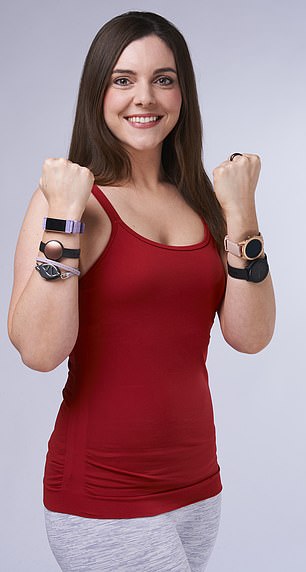
How do you find a wearable that works for you? LIBBY GALVIN (pictured) put seven devices to the test, and based on my experience and Dr Sanders’ comments, then rated them.
From the cheapest pedometer to £400 smart watches, a dazzling array of fitness ‘wearables’ on the market claim to do everything from count the number of steps you take to analyse how you sleep.
And the experts say they really are worth investing in if you want to get moving.
‘Trackers give you feedback about your activity levels and allow you to set goals, and the research suggests these elements can be very motivating,’ says Dr James Sanders, a research associate in digital health technology at Loughborough University.
But can they keep all the promises they make? Step counting — using an accelerometer, a sensor that detects movement — seems to be reliable across most devices, but some scientists raise their eyebrows at claims of accurately measuring heart rate and sleep.
‘Newer trackers measure heart rate using photoplethysmography, which works on the basis that blood reflects red light and absorbs green light,’ explains Dr Sanders.
‘Green lights on wearables pass through the skin and when the blood is pumped through your capillaries it changes the amount of light returned to a sensor. The tracker is programmed to use this to determine your heart rate.
‘But signals can be distorted by intense activity, skin pigmentation or wearing lotions and tissue-on-tissue compression (which may happen at the wrists when we do exercises such as push-ups),’ he adds. ‘To be more precise, you’d need to use a chest strap recording the electrical activity of the heart.’
Tracking sleep, too, is complex, he says. ‘Most wearables can detect sleep and wake states, and if they have heart-rate sensors they may sense stages of sleep, but there are limitations in detecting deep sleep — the most restorative stage.
‘You would need to measure brain and muscle activity and eye movement, and these trackers don’t do that.’
So how do you find a wearable that works for you? I put seven devices to the test, and based on my experience and Dr Sanders’ comments, then rated them.
OFFERS DAILY DETAILS WITH MINIMAL FUSS
Motiv smart ring, £199.99, mymotiv.com
CLAIM: Tracks heart rate, steps, sleep, and calories burned.
VERDICT: The least obtrusive wearable I tried, it’s comfortable overnight and water resistant, so there’s no need to take it off when washing or swimming.
Its sleep tracking seemed accurate — the easy-to-navigate graph on my app the next morning was correct when it came to the time I’d nodded off and woke up, showing six-and-a-half hours sleep.
The graph also differentiates between restful and restless periods, but I can’t entirely vouch for the accuracy of that — I was asleep after all. Unfortunately, it’s not for gym lovers: it was uncomfortable when I leaned on my hands during a downward dog in yoga, never mind lifting weights or attempting a pull up.
Dr Sanders warns: ‘The small size may make the ring appealing, but it’s unclear how day-to-day activities — such as typing — may affect its step measurements.
And the three-day battery life means people need to remove it often to charge, and the more you take it off, the more opportunity there is to forget to put it back on.’ 6/10
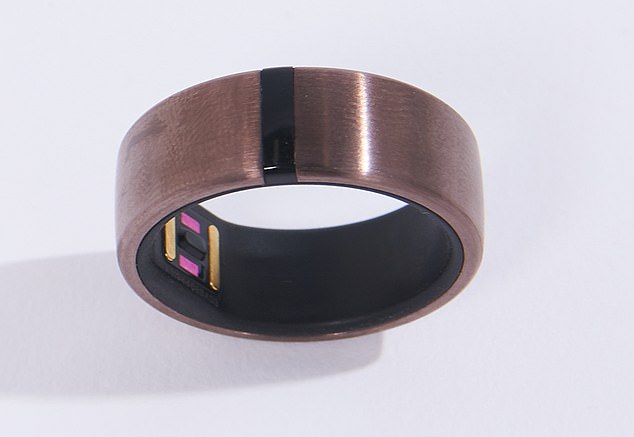
Motiv smart ring, £199.99, mymotiv.com
LIKE A PERSONAL TRAINER IN YOUR EAR
Samsung Gear IconX, £179, samsung.com
CLAIM: Wireless earphones log distance and calories burned. And a built-in coach also offers encouragement.
VERDICT: I was excited to try these but sadly, as an iPhone user, I couldn’t make the most of them. The five-hour battery life would not see you through the day and, as Dr Sanders points out, ‘as they are primarily for listening to music, you would be taking them out regularly, which may limit the accuracy of your activity data’.
‘They also don’t include a heart rate monitor, which is a shame,’ he says. ‘However, having a ‘personal trainer’ in your ear may help you complete your workout.’ 5/10
STYLISH TRACKER FOR ALL EXERCISE TYPES
Fitbit Charge 3, £129.99, fitbit.com
CLAIM: Tracks steps, distance and calories; issues reminders to move. Automatically recognises different exercises and sleep stages.
VERDICT: This straddles the gap between simple fitness tracker and elite smart watch, at a reasonable price.
It’s easy to use, waterproof and the changeable wristbands meant I could wear a rubber strap in the pool and switch to a prettier fabric band the rest of the day.
Once a week the app emailed me an update of my weekly achievements, which was motivating and meant I didn’t feel ‘tied’ to checking my stats constantly. It seemed accurate on sleep.
The only downside is it can’t map runs as it doesn’t have GPS, unlike the Galaxy and Garmin (see right). Dr Sanders says the idle alert — a vibration when you haven’t moved enough — and reviewing your progress on the watch face can help with motivation ‘on the go’.
But how accurately it can recognise different sports ‘will be in question until we get independent evidence’. 8/10
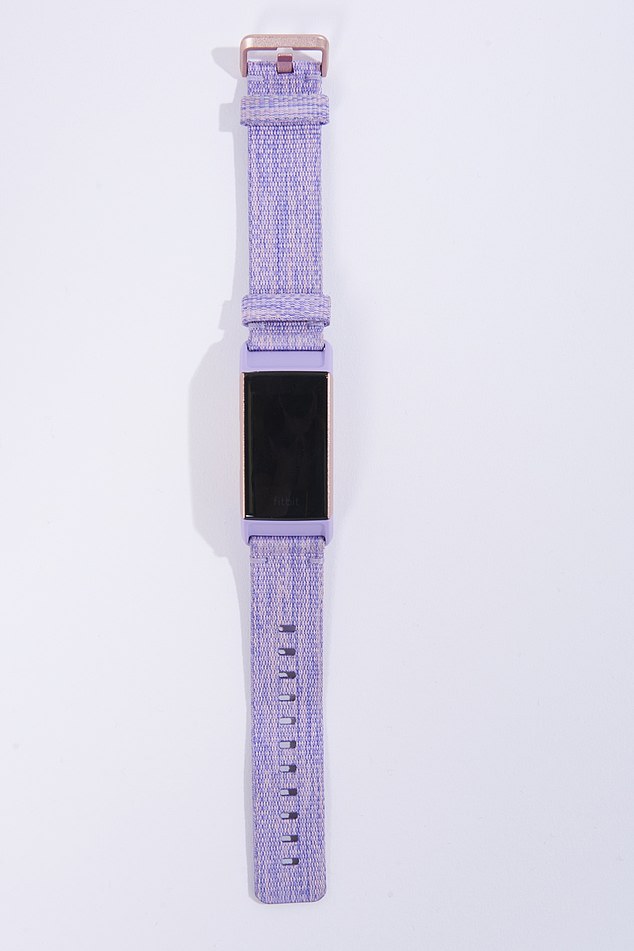
Fitbit Charge 3, £129.99, fitbit.com
CHIC, BUT A BIT TOO CUMBERSOME TO WEAR
Bellabeat Leaf Urban, £129.99, bellabeat.com
CLAIM: Tracks steps, distance, calories, sleep and stress.
VERDICT: Bulky, it got in the way when worn round my neck, snagged on clothes when on my wrist, and fell off while I walked with it on my waistband.
Dr Sanders points out that ‘wearing it as a necklace may cause the sensor to pick up movements, such as when it swings around, which aren’t related to activity’.
I found it underestimated my sleep patterns, telling me I’d had four hours when other trackers showed I’d had six-and-a-half and, based on that, it upped my stress score the following day — which would have made me feel more anxious if I didn’t know better.
I wanted to like this, but all I noticed was what it can’t do (such as measure heart rate) and that at this price it should do. 3/10
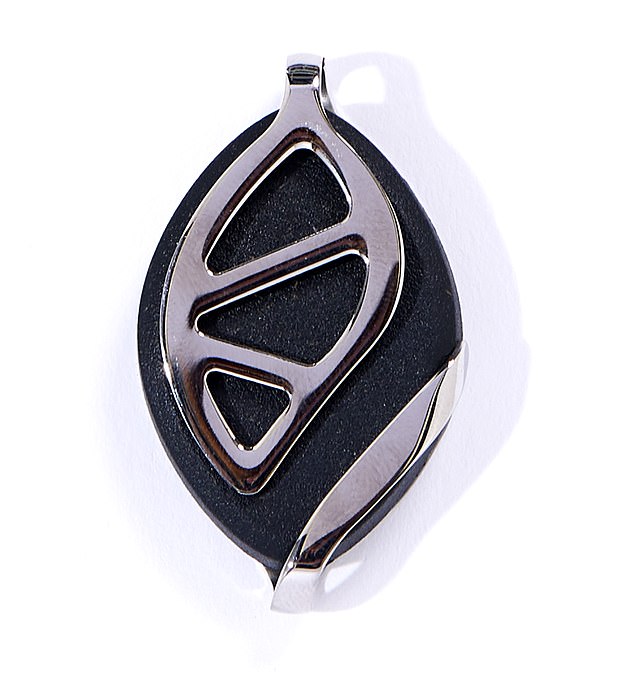
Bellabeat Leaf Urban, £129.99, bellabeat.com
IDEAL FOR MUSIC AND TECH FANS
Garmin Vivoactive 3 Music, £299.99, garmin.com
CLAIM: Tracks steps, heart rate, stress, sleep and sports including yoga, golf and skiing. Monitors fitness by estimating VO2 max (the maximum rate of oxygen consumption during exercise).
VERDICT: This has something for everyone. The music feature and GPS means you can leave your phone at home when exercising — great news, as I hate mine bouncing around in my pocket when I run.
The sleep tracking was good — it even recognised me waking slightly around 5.30 one morning when my husband got up for work.
But it’s not faultless, as it thought I was asleep when I was just reading in bed.
‘The music element may help with motivation during exercise,’ says Dr Sanders. ‘VO2 max reflects cardio- respiratory fitness and is a strong indicator of health — although how accurately this measures it is unclear without independent research.’ 9/10
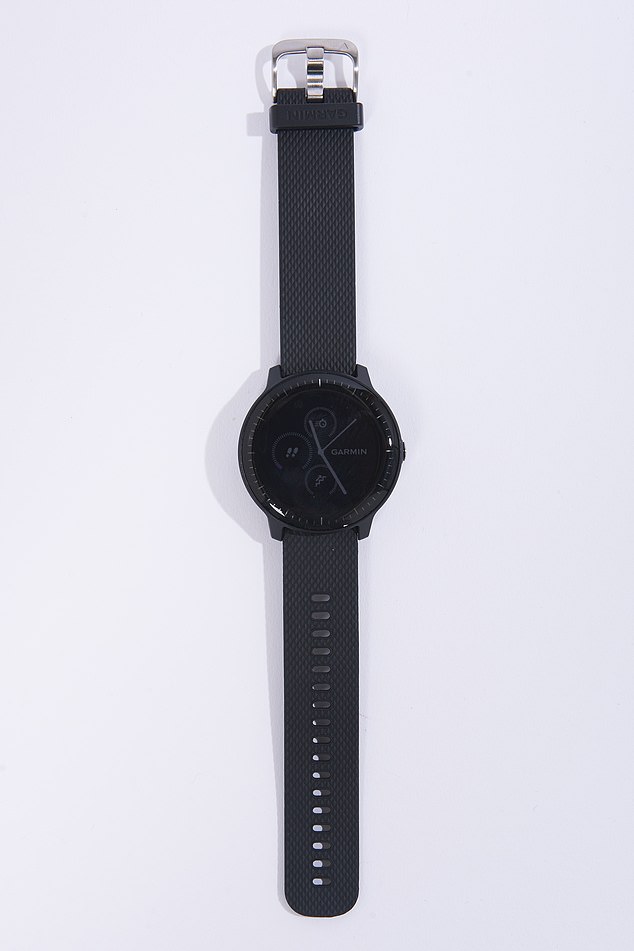
Garmin Vivoactive 3 Music, £299.99, garmin.com
BUDGET BUY WILL APPEAR TO SWIMMERS
Misfit Shine 2, £48.93, amazon.co.uk
CLAIM: Tracks steps, distance, calories, and sleep.
VERDICT: Probably the best of the trackers without displays, despite lacking a heart rate monitor. The long battery life (six months) means it’s always ready to go, and you can wear it anywhere — wrist, ankle, clipped to clothing or laced on your shoe.
As Dr Sanders points out: ‘The ability to be worn in a number of places makes it aesthetically pleasing, and the reduced need for charging — and being waterproof — means you don’t need to take it off often.’
For an additional £9.99 you can use a Speedo swimming app, which claims to track distance and count laps, which is worth doing — after all, this wearable is less than a third of the price of other trackers with far fewer features. 7/10
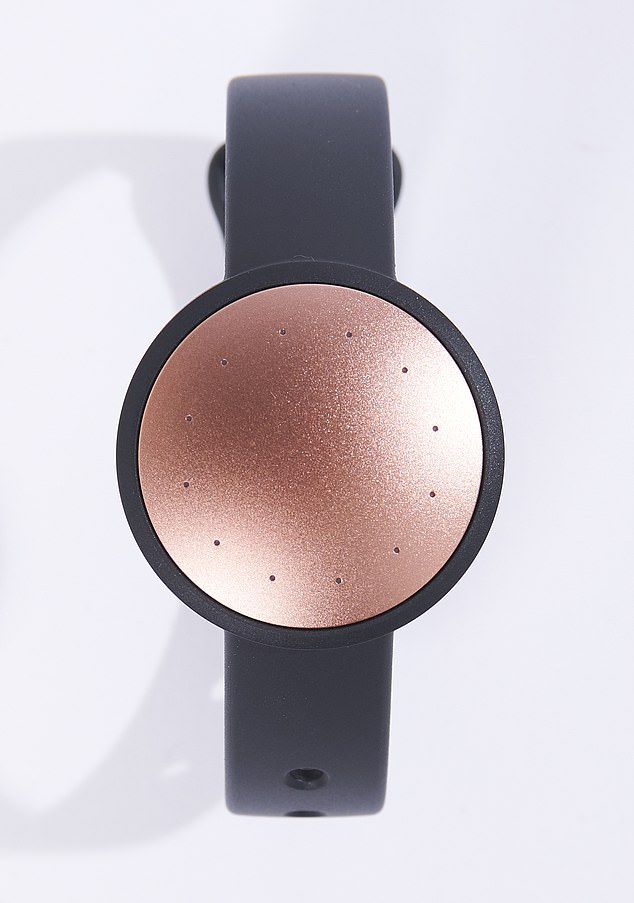
Misfit Shine 2, £48.93, amazon.co.uk
FOR A PHONE ADDICT WANTING TO WORK OUT
Samsung Galaxy Watch, £279.00, samsung.com
CLAIM: Tracks heart rate, calories, sleep quality and stages, and up to 40 exercises. Also monitors stress and provides meditative breathing tutorials.
VERDICT: This can do almost too much — I was constantly buzzed with notifications until I work out how to switch off the smartphone pairing option, although this would be a bonus for people who like to stay connected.
Not all the features are available unless you have a Samsung phone, but it was still useable without one.
My favourite feature: it vibrates to prompt you to move after an idle period, but unlike other trackers, which you can trick by standing up and sitting back down, it prompts you to do five ‘torso twists’, tracking the motion until complete.
It was not brilliant at monitoring sleep compared with the Fitbit and Motiv — but as it’s quite chunky I wouldn’t wear it in bed anyway.
Dr Sanders says: ‘It’s stylish and can perform two jobs (smart watch and activity tracking), which means it’s less likely to end up gathering dust.’ 6/10
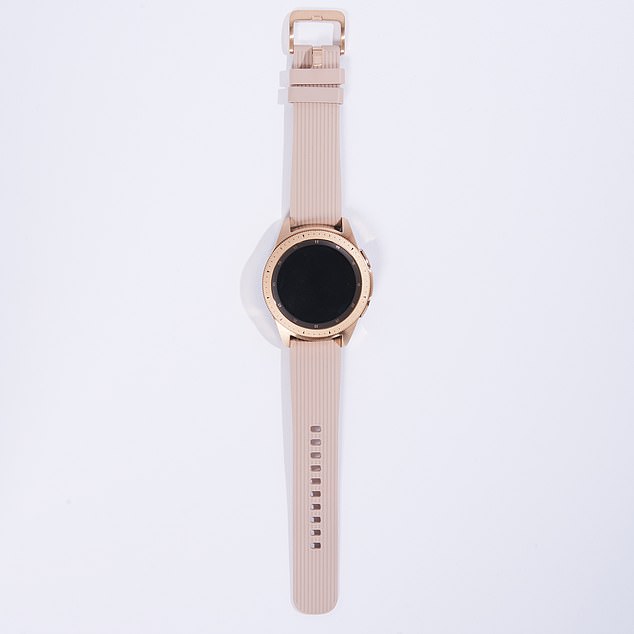
Samsung Galaxy Watch, £279.00, samsung.com
